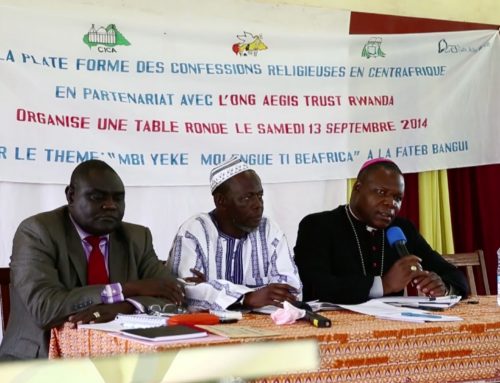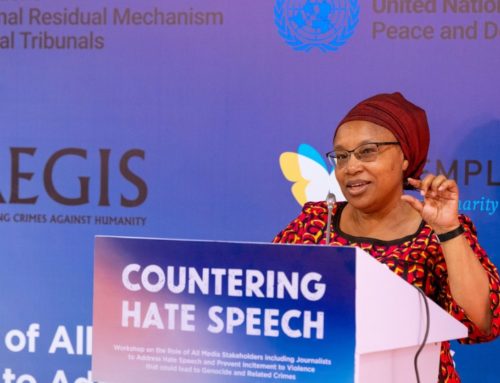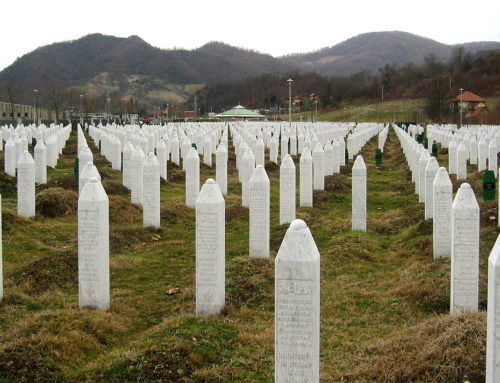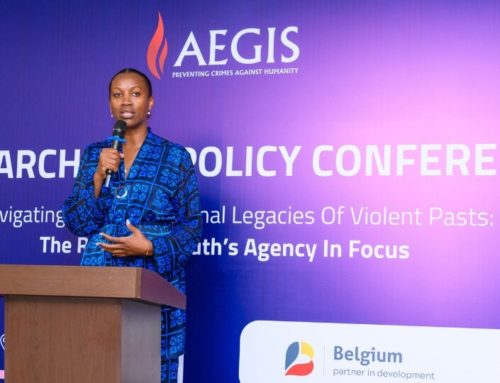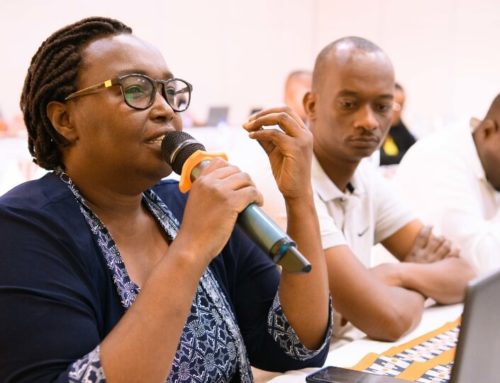Friday, 8 January 2010
After a long hiatus, the first trial before the ICC recommences with a clear statement: the Court must give justice to girls recruited by the militia of the accused Congolese warlord Thomas Lubanga Dyilo. The UN Secretary General’s Special Representative for children and armed conflict, Ms. Radhika Coomaraswamy, took the stand on Thursday to remind the three judges that their ruling will be essential in the creation of a framework to protect all children in conflicts, especially young girls who have suffered sexual abuse. These are powerful words to be uttered so soon after the victims’ attempt to ‘re-characterise the facts’ to include sexual violence and inhuman treatment was refused.
Ms. Coomaraswamy appears in Court as an expert witness appointed by the Chamber. She is about to testify on the definition of conscription or enlistment of children, and on the interpretation of the term “using them to participate actively in the hostilities,” focusing specifically on the role of girls in armed forces. These are two areas previously covered by her report, submitted to the Court, and to which the expert must limit her testimony.
In Ms. Coomaraswamy´s words, the Rome Statute distinguishes between conscription and enlistment by saying conscription is compulsory, whereas enlistment entails a voluntary act of enrollment. “We urge caution in approaching this distinction in the context of children and in the context of the changing nature of warfare,” says the expert. Ms. Coomaraswamy explains that the likelihood of these crimes occurring is inevitably high due to the nature of contemporary armed conflicts. “I would say
Ms. Coomaraswamy thinks there are several aggravating factors that increase the risk of military recruitment: the impunity enjoyed by those in power during conflicts, the ever-present need for more recruits, and the vulnerability of children who are often orphaned or displaced. While children are often abducted by militias, others may join the armed groups voluntarily. “[This] takes place in the context of poverty, ethnic rivalry and ideological motivation. Many children, especially orphans, join armed groups for survival to put food in their stomach. Others do so to defend their ethnic group or tribe and still others because armed militia leaders are the only seemingly glamorous role models they know. They are sometimes encouraged by parents and elders and are seen as defenders of their family and community.” Therefore the distinction between conscription and enlistment may be paper-thin for many children. “Children often join [the armed group] just as a matter of pure survival.” What is crucial here, she stresses, is that the militia leaders decide; “It is a matter of accountability,” says Ms. Coomaraswamy.
Concerning what constitutes using children “to participate actively in hostilities,” the expert asks the Chamber to take a broad view of the roles played by child soldiers within the armed groups. In particular she urges the Court to include the sexual acts perpetrated against girls within its understanding of the “using” (using children as active participants in hostilities) crime. “Children often have multiple roles in these wars. There is no clear distinction between those on the front line and those in rear bases as they are drawn in traditional armies. It is important that the Court address the issue of how to protect children in such a context of multiple roles,” says Ms. Coomaraswamy. “Children used in hostilities are forced to play multiple roles: cooks, porters, nurses, spies, messengers, administrators, translators, radio operators, medical assistants, public information workers, youth camp leaders, and girls or boys are used for sexual exploitation,” explains the expert. “This is the message I bring to you from the field: any international framework for the protection of children in conflicts must include girls,” she clearly states. “Your Honour, it is important that your rulings protect all affected children and do not ignore the central abuse perpetrated against girls during their association with armed groups.”
Following Ms Coomaraswamy´s testimony, another expert witness takes the stand at the request of the Legal Representatives of Victims. The name of the witness is Kambayi Bwatshia. He is a Congolese professor, an expert on names and other social conventions in the Democratic Republic of the Congo, brought in to shed light on the reasons behind several discrepancies in witness’s names found during the Prosecution´s case.
Mr. Kambayi Bwatshia points out misspellings in the recording of names in the Registry as one of the principal causes of uncertainty in names in the Democratic Republic of Congo. “The Bantu languages in our country are languages that have been codified by the colonial masters, and so the pronunciation of certain names or vowels becomes difficult. This means that the name that is given to the Civil Status Registry, which is authentically pronounced by the parents, may be transcribed phonologically wrongly.” Names are usually provided orally by illiterate people, a fact that also contributes to errors in transcriptions.
Difficulties arise when people arrive at a Registry Office without proof of identity of a child they wish to register. “You cannot say outright that there is documentary evidence that is provided. Everything is done in a haphazard manner within a context of confusion because of the effects of colonisation, because of the effects of the war, and the effects of what I can refer to as lack of culture,” says Mr. Kambayi. In that case, “everything depends firstly on the level of education of the parents or the people who come to do the registration.”
In Ituri the identification process becomes more complicated due to the war. He explains that “after the outbreak of war, there were difficulties, because most of the inhabitants fled the region and sought refuge elsewhere…and in that context, most of the Civil Status Registry offices in the communes, in the rural areas, disappeared.”
“So when you consider that there were already difficulties during peacetime, the difficulties during the war simply came to add to those.”
The cultural fact of using different names may also lead to confusion, the expert explains to the Chamber. “It is not surprising to note that several individuals, such as myself, bear many names. And these are all my names, and I accept them as such. It becomes complicated when the Civil Status Registry wants a single name,” he says. “A person from a Bantu tradition, in giving a name to their child, tells a whole story.”
Three participating victims will appear in Court next week in order to express their views and concerns and give evidence in person as witnesses. Once their testimony comes to an end, it will be the turn of the Defence Team, who will present the exculpatory evidence in its possession.
This team has already expressed worry about the change in the order of appearance of some of their witnesses, due to difficulties in obtaining passports for travelling to The Hague. “Our concern is that [this] is important with regard to the manner of introducing our evidence,” said Lead Counsel Catherine Mabille. According to her, the list of Defence’s witnesses had been amended by the Registry without their involvement and therefore she asked the Court to ensure the order of appearance of the first five witnesses be respected.


